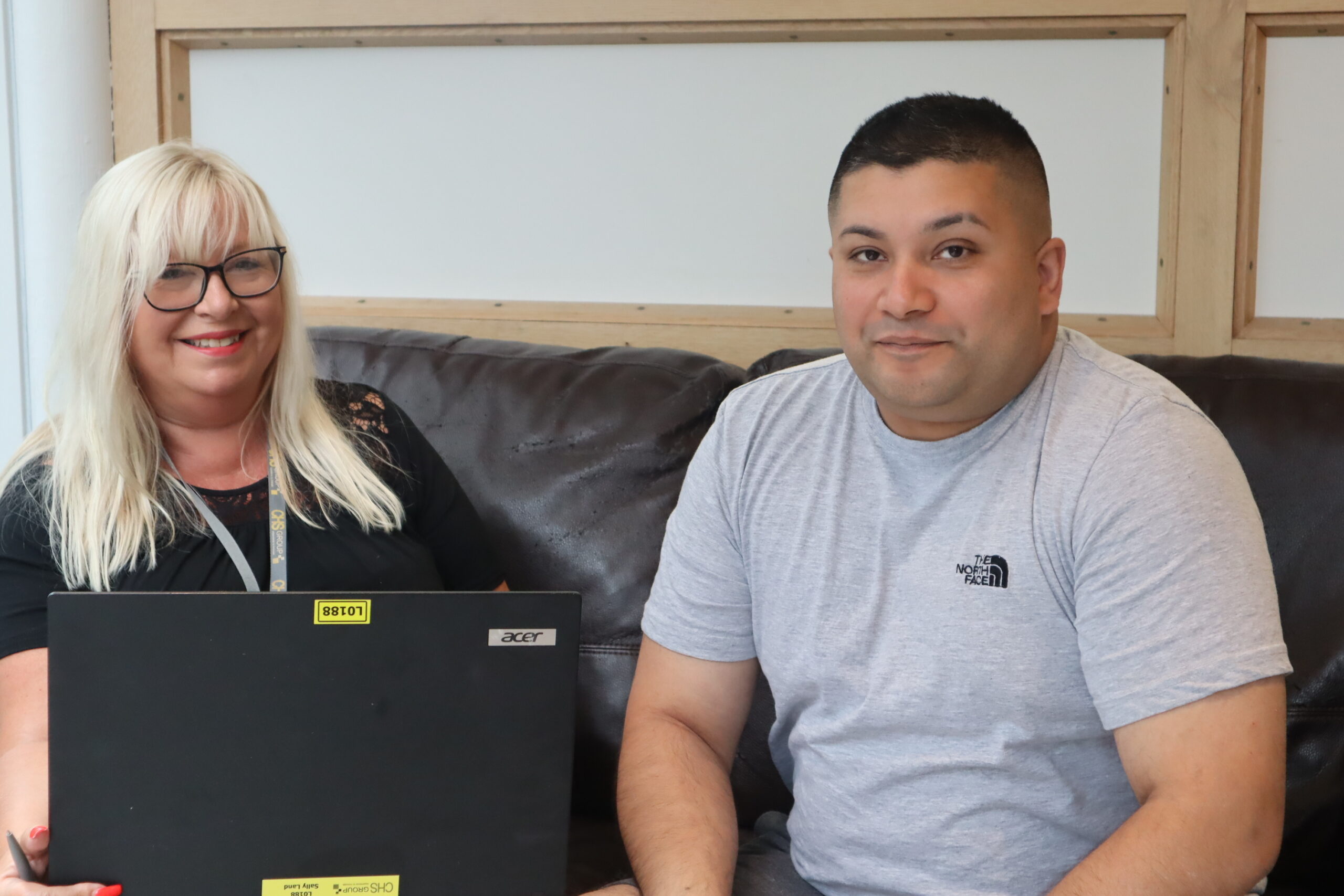Corona House is a supported housing service providing accommodation and support to women in Cambridge who have housing and support needs. The women at our service live in one-bedroom flats within the Corona House building and support is tailored to individual needs. This support is delivered in a range of ways including group activities, peer support and one-to-one sessions which provide a holistic, tailored support model.
 At Corona House, we believe that being a valued part of the community is essential for living a positive and fulfilled life and, therefore, we focus our efforts on getting individuals integrated locally. This includes connecting people with a wider group of women living in Cambridge, through our Corona Community initiative.
At Corona House, we believe that being a valued part of the community is essential for living a positive and fulfilled life and, therefore, we focus our efforts on getting individuals integrated locally. This includes connecting people with a wider group of women living in Cambridge, through our Corona Community initiative.
Corona House is a real hub of creativity, and this is reflected in the different ways we deliver support. We offer at least three activities a week including creative workshops, leisure activities, and social events all held within the local community either in the Corona House communal rooms or in local parks and green spaces, museums and galleries, local coffee shops and areas of public interest. We also deliver a mix of online and in person activities, depending on the preferences of the women.
During 2022, Corona House took over managing a local allotment with the aim of contributing to the community, supplementing the women’s diets with fresh produce, developing confidence and horticultural skills, and building relationships. The allotment has become a thriving community project and, working with local organisations including Cambridge Young Offending Services, Cambridge Womens’ Resources Centre, and the Community Kitchen, we now have enough volunteers and collective energy to keep the space well-tended, growing lots of vegetables, fruit, and flowers. The space also provides a habitat for the local wildlife including newts, frogs, butterflies, and insects.
Sessions at the allotment include a women’s only meeting on Tuesday and a session open to all on Fridays. We now have tenants from our local general needs properties, as well as our other supported housing services volunteering.
‘I love the allotment space – I can do as much or as little as I like. I enjoy tasting the different herbs we grow, and I’ve started learning how to cook things into soup which is nice now it is getting colder’ – Corona resident
‘A little community has grown up around the allotment, linking me with people I might not have met otherwise. I love the way we share the simple goal of growing our own vegetables and creating a peaceful, natural place to enjoy. There’s a feeling that we all join in this task as equals, working out together what we’d like to do and sharing the food we grow. It’s such a refreshing contrast from so much of life!’ – Volunteer
Creativity lies at the heart of everything we do at Corona House, whether it is finding solutions to a problem or hosting popular workshops. Our women thrive through creative expression, and this was never more evident than when in April 2023 local Cambridge gallery Artworks held an exhibition of the work that had been created during our workshops. The pride and excitement our women felt when they saw their artwork on public display was only matched by the news that some of their work had been purchased during the exhibition. The women’s confidence has grown considerably not only in their artistic talent but also as individuals.
Whilst we encourage our women to engage with group and community-based activities, we also recognise that one-to-one sessions with support workers are key to supporting our women with a variety of needs including
- accessing benefits
- dealing with domestic abuse or relationship difficulties
- managing their physical health
- managing financial challenges
- coping with bereavement
- support with tenancy or property issues
- supporting them through mental health crises
One-to-one sessions are tailored to each woman’s specific needs which can be varied and complex. For example, we have supported one woman to resit her A Levels, discover a university course in Manchester through clearing, find somewhere to live and access student finance, as well as supporting her with the move itself.
We also offer a range of free excursions and activities for residents at Corona House and members of the Corona Community, funded by donations to our amenity fund. There have been some fun trips out to the cinema, cafes, Raptor Foundation, National Trust sites and other places of local interest. These trips enable our women to not only socialise but do things they may not otherwise do as they would not go alone. These trips have increased positive wellbeing, confidence and feelings of achievement at trying something new. Many of the trips or activities are beyond what our women can otherwise afford as most of them are on low incomes and cannot pay for travel fares outside of the city or lunch in a café.
The women are looking forward to a seaside caravan holiday in September. For some, this will be the first holiday they have experienced.
We have seen reductions in isolation for the women who take part in our activities. The women access activities that are of interest to them and this, in turn, enables them to be part of a safe community. It allows us to support women who are anxious about travel or coming to a group alone. We keep the women engaged by having an open and continuous dialogue about what they want to do, experience, and learn. We hold a steering group every couple of months specifically for consultation purposes and the feedback we receive feeds into future activities.
Using the Warwick Edinburgh Mental Wellbeing Scale (WEMWBS) survey, all respondents reported they have been feeling more optimistic about the future; are feeling more useful; are thinking more clearly and that they are able to make decisions more easily. Other positive outcomes achieved by the majority of respondents include feeling closer to other people, feeling more relaxed, and dealing with problems well. In 2022/23 the service generated £227,882 in social value using HACT’s framework.


 Working with our Housing and Property Services teams, we identified the key cost of living issues faced by tenants which included paying rent, sustaining tenancies, fuel poverty, the effect of black mould and condensation on health and gaining access to boilers for maintenance.
Working with our Housing and Property Services teams, we identified the key cost of living issues faced by tenants which included paying rent, sustaining tenancies, fuel poverty, the effect of black mould and condensation on health and gaining access to boilers for maintenance. The
The  At Corona House, we believe that being a valued part of the community is essential for living a positive and fulfilled life and, therefore, we focus our efforts on getting individuals integrated locally. This includes connecting people with a wider group of women living in Cambridge, through our Corona Community initiative.
At Corona House, we believe that being a valued part of the community is essential for living a positive and fulfilled life and, therefore, we focus our efforts on getting individuals integrated locally. This includes connecting people with a wider group of women living in Cambridge, through our Corona Community initiative.